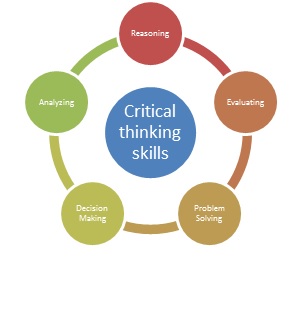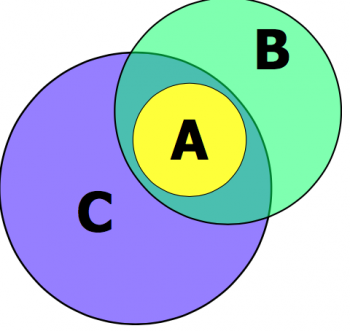“I mean, you could claim that anything's real if the only basis for believing in it is that nobody's proved it doesn't exist!”
― J.K. Rowling
Logic and Critical Thinking are two key areas in philosophy. Logic specifically is useful in mathematics, computer science and related subjects, while critical thinking is important to all people in making decisions throughout life: in academics, work, and personal interactions.f="#1">¹
Logic means using reasoning to find the validity of an argument.¹ Logic began in ancient history – from India, China, and Persia. In Greece, Aristotle began the study of logic within philosophy. Al-Farabi, the Arabic scientist and philosopher, was considered the “Second Teacher” after Aristotle, and identified ideas and proofs as the two elements of logic.¹ In modern study logic has three parts: inductive reasoning, abductive reasoning, and deductive reasoning.
Deductive reasoning is a “top-down” approach, where one starts with a general statement and then reaches a more specific conclusion. Inductive reasoning is the opposite – starting with a specific consideration and using the pattern to find a more general conclusion.¹
Deductive¹
All people are mortal.
Jane is a person.
Jane is mortal.
Inductive¹
My cat likes to chase mice.
The other cats that I know also chase mice.
All cats chase mice.
Sherlock Homes famously “deduces”, but in truth he primarily uses abductive reasoning to come to his conclusions. Abductive reasoning could be considered “guessing” but it generally means that a person uses observed data to explain the evidence. If the lawn was wet it would be reasonable to abduce that it had rained the night before.¹ Note that abductive reasoning often leads to a “best guess” situation – instead of rain a sprinkler could have wet the grass. The abducer would want to eliminate alternate possibilities¹: “I don’t own a sprinkler, the lawn is wet, therefore it is likely that it rained last night.” This form of reasoning is used every day by doctors and other medical professionals, who must use their knowledge and experience to judge the best treatment for medical issues.
When someone makes an argument, critical thinking is used to decide whether the assertation is true or false, or something in between. The Socratic method and the Buddhist Kālāma Sutta are two early forms of critical thinking.¹
Critical thinking is “purposeful, self-regulatory judgment which results in interpretation, analysis, evaluation, and inference, as well as explanation of the evidential, conceptual, methodological, criteriological, or contextual considerations upon which that judgment is based.”¹
Critical thinking requires an objective consideration of a claim, interpreting the data in support or opposition to the claim, and deciding on a conclusion based on the evidence. Logic is a key requirement in any critical thinking exercise.¹
Image source:
1. Wikimedia
Resources:
1. Facione, Peter. 1988. Critical Thinking: A Statement of Expert Consensus for Purposes of Educational Assessment and Instruction. Retrieved May 21, 2014, from http://assessment.aas.duke.edu/documents/Delphi_Report.pdf
© BrainMass Inc. brainmass.com June 30, 2024, 8:43 am ad1c9bdddf

